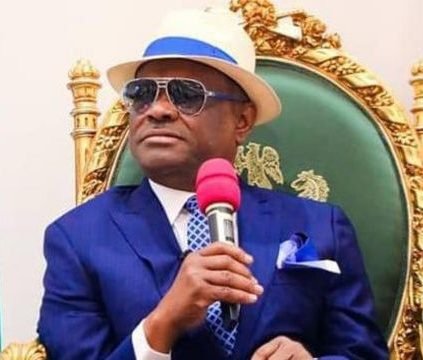By SHEDDY OZOENE
“Freedom of the press is not just important to democracy, it is democracy.”
– Walter Cronkite
For the second time since his inauguration last year, President Bola Tinubu has made a show of the Democracy Day, and using it as a reminder to the public of his democratic credentials as an activist, protester and a man who deployed the media in setting the nation’s political agenda. The last one was even more so, as he virtually raised the dead heroes of Nigeria’s Democracy, with an uncommon outpour of encomium.
It all started 31 years ago, when the fairest and freest election ever conducted in Nigeria and which was presumably won by Chief Moshood Abiola, was annulled by then military President, General Ibrahim Babangida. It would lead to a torrent of political activities and struggles that ultimately resulted, 6 years later, to the return to civil rule. The struggle not only claimed Abiola‘s life, his wife, Kudirat, and several other political figures including General Shehu Musa Yar’Adua and Pa Alfred Rewane, among others, paid the supreme price.
While many others were hunted down, the likes of Tinubu were hounded into exile, from where they intensified their advocacy and put it on the international agenda. Fittingly, the man who paid the tributes, is one of the leaders of the struggle.
There also lies the contradictions.
Since his inauguration last year, many had expected that the Tinubu federal administration would be a shining light in upholding the tenets of democracy, free speech and human rights. The expectation was based on his antecedents as a private citizen, but to say that some actions of his government have disappointed, is to state it mildly. His administration has displayed a rare attitude of intolerance of dissent and this has been glaring, especially, in the way journalists have been treated in the past year.
In a very absurd effort to muzzle the media and free speech which is guaranteed by the 1999 constitution, as amended, many journalists have been abducted and incarcerated without any charge. The case of Segun Olatunji, the editor First News, is a case in point: he was seized by 15 government security operatives in the presence of his wife and children in the Alagbado area of Lagos on March 15, 2024, and locked for a news report against a top official of the government. The Defence Intelligence Agency eventually released him after spending nearly two weeks in custody without trial.
While he was blindfolded and his whereabouts kept secret, media enquiries was spurned until the government succumbed to pressure and released him in the most bizarre manner, under the Asokoro bridge. In this ordeal, Olatunji is not alone, as no less than 4 senior journalists have experienced this bitter taste of detention without trial, on Tinubu’s watch. It took the pressure from rights groups before another journalist, Daniel Ojukwu, a reporter at the Foundation for Investigative Journalism, who was abducted in Lagos on May 1, was released after nine days without trial.
In similar gestapo fashion, Jones Abiri, editor and publisher of the Weekly Source newspaper, was also abducted by security operatives in Bayelsa state and detained without charges. International watch dogs, including Amnesty International, described the manner of his arrest as ‘humiliating’.
The media was one of the institutions honoured by Tinubu last Wednesday, at least in words. He had declared “we could not have won the battle against military dictatorship without the irrepressible Nigerian journalists who mounted the barricades along with the pro-democracy activists”, adding that despite the might of the past military governments, the walls of dictatorship have been pulled down and they no longer exist.
Really? While the military is gone, it is not exactly true that the obnoxious ideals they enthroned have all gone. The media and the extent of freedom individuals enjoy in the exercise of free speech, is a more plausible indicator of democracy than the length of the President’s babanriga. For a President who, according to Comrade Shehu Sani is the grandfather of protests and activism in Nigeria, Tinubu’s records does not show it. The press do not only feel used and dumped by Tinubu, they are now struggling to be allowed to breathe.
The President was right to say that we cannot reduce our democracy to “the mere holding of periodic elections where one candidate and party outdo another”. Most Nigerians would agree, except that even that mere ritual of periodic election, has been reduced to one big farce. The election that brought him last year, would count as an inglorious example.
For a plural society like ours, a country of over 250 nationalities cobbled together in one nation, we should be more liberal to free speech, differing opinions and diverse perspectives. The application of force to virtually every dissenting viewpoint, indiscriminate arrest of journalists and observed hatred against the Igbo, do not have a place in a democracy like we mouth.
The wastefulness of government and the greed, haughtiness and avarice by its officials, are all antithetical to the concept of democracy that puts the people, especially the majority poor in Nigeria, at the center. What obtains is that public office has become an avenue to massage narrow personal interests rather than for the service of the common good.
Those are among the real threats to our democracy and the President should not only pay lip service to the ideals of democracy, but make it a point to uphold the rights and freedoms of the people, ensure free speech and ensure all are treated fairly in a nation we should all be proud of.
Sheddy Ozoene is the Vice President (East) of the Nigerian Guild of Editors


















